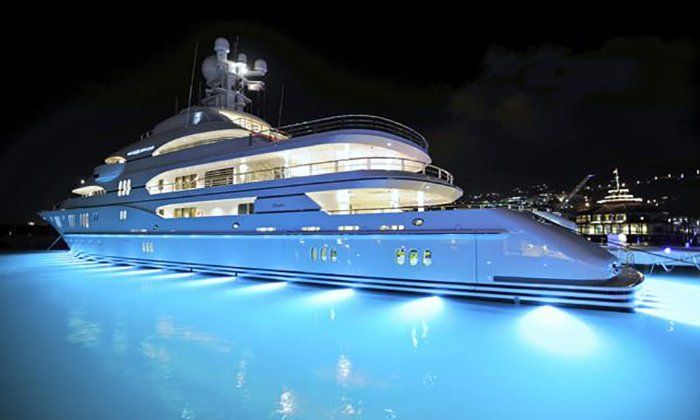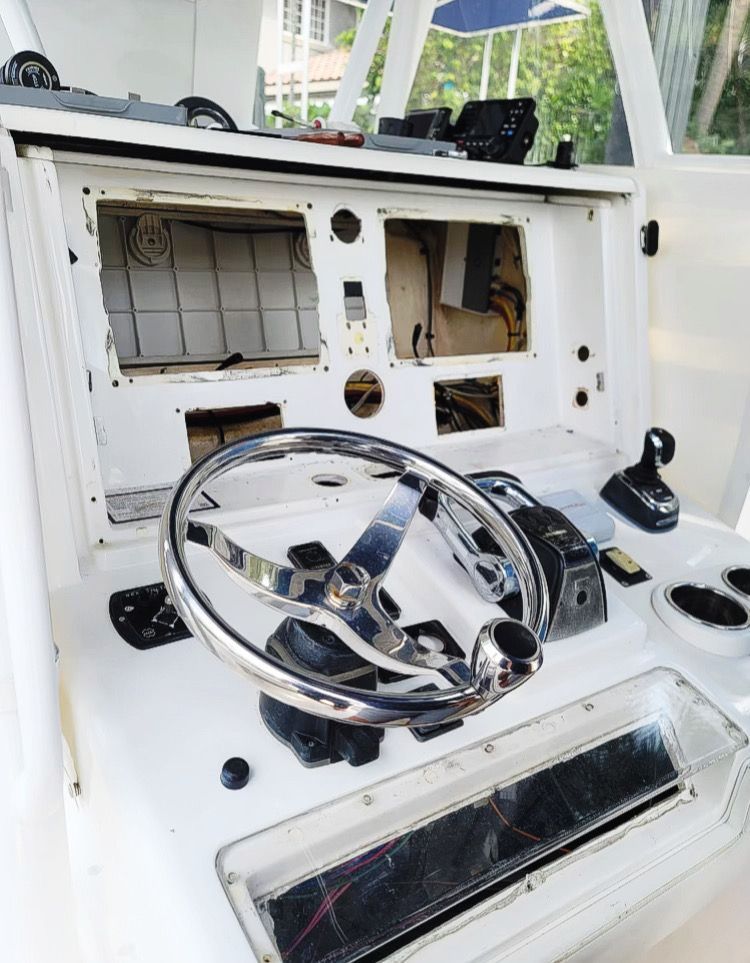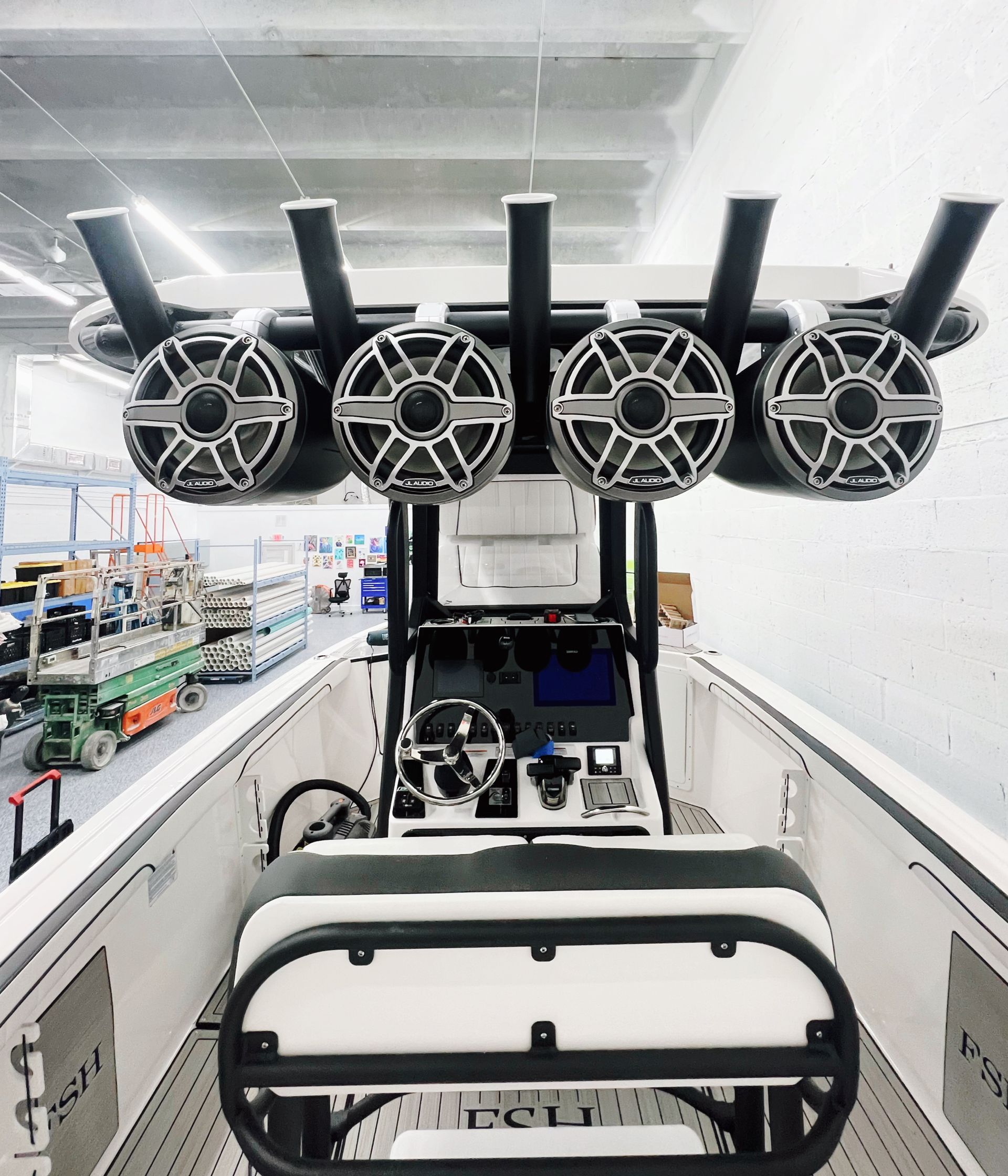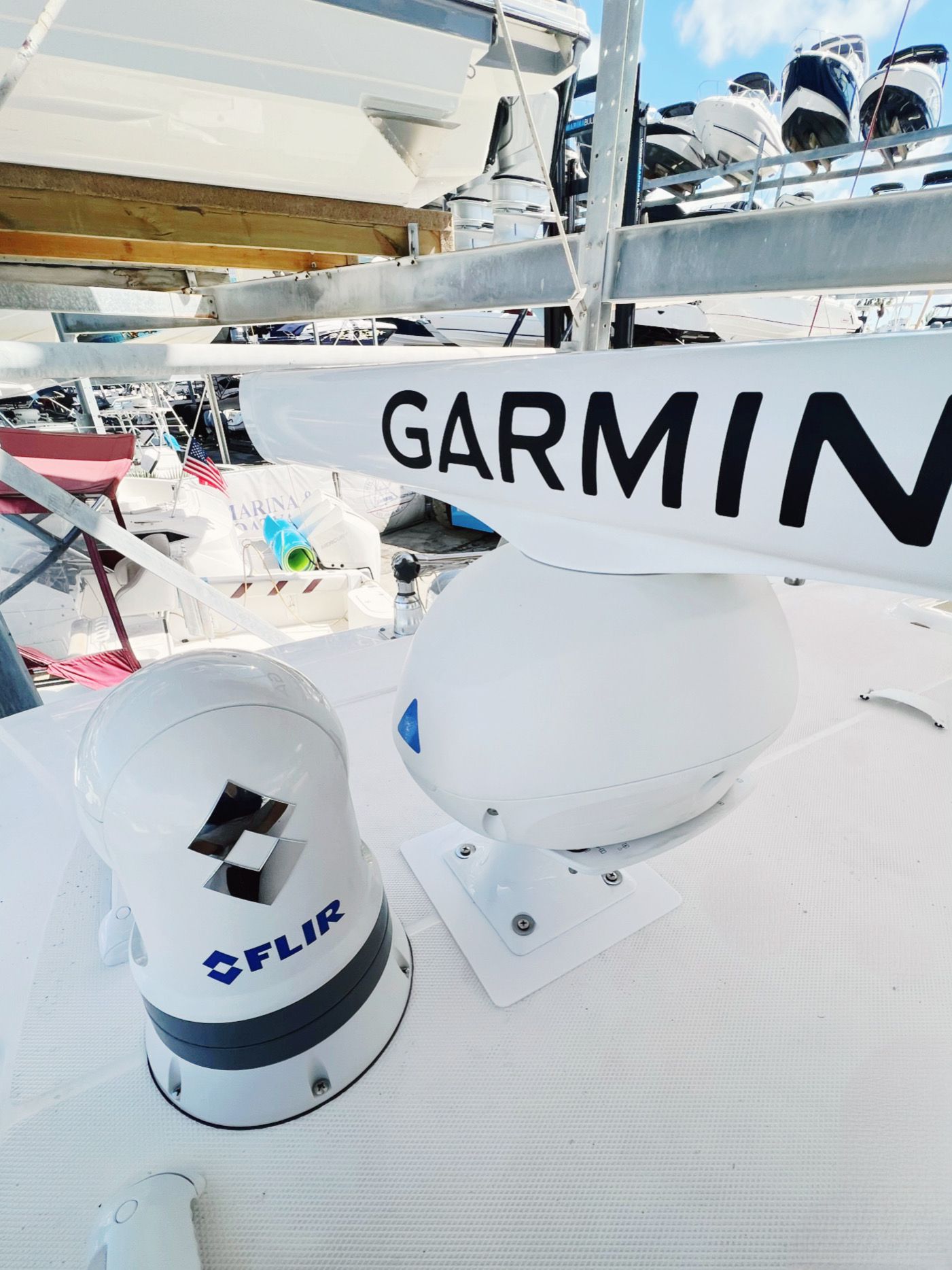10 Future Marine Technology Trends to Watch (2023)
The era of digitalization is dramatically transforming various sectors, including marine technology.
Rapid advancements in tech and the escalating need for increased efficiency and safety at sea have given birth to a gamut of innovative improvements in marine technology.
This surge is driven by a laudable fusion of traditional maritime pursuits with modern digital trends, thus reshaping the future of this industry.
What lies ahead for us on the horizon of marine technology?
Let us delve into the hottest trends leading the transformative wave in this sector.
This analysis additionally highlights their potential impacts, bringing to the fore the extraordinary possibilities they offer.
Future Marine Technology Trends To Watch
1. Autonomous and Remote-Controlled Ocean Vessels
The concept of autonomous and remote-controlled ocean vessels has been steadily gaining traction in the marine sector.
These advanced vessels are equipped with cutting-edge technology enabling them to navigate without a crew on board, hence decreasing the possibility of human error.
A key driving aspect behind this trend is the need for enhanced safety, efficiency, and cost-effectiveness in maritime operations.
As technology consistently advances, the development of such vessels is becoming more feasible and realistic.
With sophisticated systems and algorithms, they are designed to make intelligent decisions, react to obstacles or changes in conditions and complete operations autonomously.
While autonomy offers several benefits, making the vessels completely self-governing also poses notable challenges, particularly with relations to regulations, liability, and cybersecurity.
The shift towards autonomous marine operations signifies a remarkable transformation in the shipping industry that calls for preparedness at different fronts including infrastructure, regulatory frameworks, and workforce scenarios.
A thorough understanding of this disruptive technology and its implications is key for the industry’s stakeholders.
One of the most significant implications of this transition is the impact on the workforce, with new skills and roles emerging as traditional seafaring jobs become less prevalent.
Establishing sound regulatory frameworks is another major aspect that has to be addressed to facilitate a seamless transition to the use of autonomous vessels.
These advances have paved the way for companies to focus on the development of completely automated shipping services that are expected to revolutionize the marine transportation sector.
These systems also offer the potential to dramatically improve fuel efficiency and reduce emissions, contributing to the global efforts in battling climate change.
There is also the possibility of these vessels operating for extended periods without the need for maintenance or downtime, making them a lucrative investment.
While enjoying all the perks of this state-of-the-art technology, it is advisable to remain future-ready to handle any associated challenges such as security breaches, ethical issues, or system failure.
As advancements in autonomous technology continue, the industry is moving closer to the day when fully autonomous shipping becomes a reality.
By watching the embedded video, you could gain first-hand insights into the operational nuances of autonomous shipping.
It elucidates on how the marine and offshore sectors are progressively embracing autonomy and the advanced technologies that facilitate this shift.
2. Increased use of artificial intelligence in navigation
As technology continues to evolve, there is an increasing use of artificial intelligence (AI) in marine navigation.
This is a significant move considering the complex and challenging nature of maritime navigation.
AI is helping to simplify processes and improve safety at sea.
The complexity of current marine navigation systems necessitates a high level of expertise and constant attention from the ship’s crew.
The increasing trend towards automation and the use of AI can address these challenges.
The idea is to use AI to identify patterns and make predictions based on the enormous amount of data available during a voyage.
AI algorithms have the ability to learn from past data, improve over time and assist in making difficult and critical decisions faster and more accurately than human operators.
For example, AI can predict weather patterns and suggest the optimal route to navigate around bad weather or to optimize fuel consumption.
These systems can integrate a wide range of data sources, including GPS, radar, and weather information, and provide a comprehensive situational analysis for more informed decision-making.
AI-powered navigation systems can greatly improve maritime safety, reduce human error and enhance efficiency.
This statement is not an overstatement. It’s backed by numerous studies and real-world examples.
For instance, Rolls-Royce Marine has developed intelligent awareness systems that use AI to interpret data and provide advice on navigation and collision avoidance.
Another example is the use of AI in the monitoring and detection of anomalies in a ship’s engine or systems, which can predict potential issues before they result in a major breakdown.
In addition, AI applications in maritime navigation also include automated docking of ships, significantly reducing the possibility of human-induced errors and accidents.
Moreover, the incorporation of AI in sea navigation is facilitating the development of increasingly sophisticated autonomous vessels, where AI takes complete control of navigation, while humans supervise operations from shore-based control centers.
Overall, the increased use of AI in navigation is a significant part of the future marine technology trends to watch.
It’s indeed a transformative technology with immense potential for the future of maritime industry.
3. Rechargeable and Algae-Based Marine Fuel Technologies
One of the most promising marine technology trends focuses on rechargeable and algae-based marine fuel technologies .
With the increasing concerns about climate change and the need to reduce emissions, these technologies provide a more sustainable option for marine transportation.
Traditional fossil fuels are not only harmful to the environment, they are also a finite resource.
In contrast, algae-based fuels are renewable and have a much smaller carbon footprint .
Algae absorbs carbon dioxide as it grows, which helps to balance the emissions produced when the fuel is burned.
This technology is already being harnessed on a small scale; however, the challenge lies in scaling it up to meet the demands of the global shipping industry.
For instance, research is ongoing to increase the yield of biofuel from algae and optimise the cultivation process to make it more cost-effective.
Meanwhile, rechargeable technologies offer another path towards sustainable marine transportation .
Research into battery technology and energy storage solutions meant for large vessels continues to evolve, offering the potential to power marine vehicles without the need for fossil fuels.
Hybrid propulsion systems which combine traditional fuel with electric batteries, can significantly reduce emissions and fuel consumption.
These systems work by using the generator or diesel engine to charge the batteries, which then supply power to the vessel.
This not only reduces fuel consumption, but also ensures greater energy efficiency by decreasing energy waste which comes with running generators at less than full load.
From watching the video, you may learn more about how methanol, a type of biofuel, can be used as a scalable zero-emission marine fuel.
It dives deeper into the technology and the global effort towards achieving zero emissions in the shipping industry.
Overall, rechargeable and algae-based marine fuel technologies represent a significant shift towards greener, more sustainable operations in the marine industry.
Their potential for reducing carbon emissions and reliance on finite fossil fuels cannot be underestimated.
As technology advances and these methods become more feasible on a larger scale, we may witness a transformative change in marine transportation in the future.
4. Real-time Oceanic Data Collection and Analysis
The rapidly evolving landscape of technology has extended to the maritime industry to significantly improve real-time oceanic data collection and analysis.
The advancements in this area have been exponential over the past few years, allowing for precise measurements of various elements such as temperature, salinity, currents, and biological productivity.
This technology has opened up opportunities for businesses to strategize more efficiently by allowing them to accurately predict market trends and changes.
The data collected from these technologies can be used to optimize the movement of maritime vessels, therefore, reducing fuel consumption and greenhouse gas emissions.
Equipped with high-level forecasting tools, this technology can alert the maritime industry about impending weather changes and potential hazards. As a result, it can help avoid accidents and disasters, therefore, saving significant costs and lives.
Real-time oceanographic research is essential to understand the impacts of climate change on our oceans.
By leveraging advanced sensors and analytical models, scientists can monitor real-time oceanic data and analyze fluctuating ocean conditions.
This information isn’t valuable just for scientific purposes; shipping companies can use this data to plan routes and avoid rough seas, drastically reducing expenses and ensuring the safety of their cargo and crew.
Efficient real-time data can also aid in tracking and managing marine ecosystems, ensuring their sustainability and conservation.
These technologies also help in identifying regions with high fish populations, leading to more effective fishing operations.
It has also been instrumental in the growth of offshore wind farm operations, providing accurate wind speed and wave data to improve efficiency and safety.
Moreover, these technologies are also being used in the area of oil spill detection and response, making it possible to act quickly and minimize the environmental impact.
Maritime security has also been able to benefit from real-time oceanic data , as it enables quick resolution of emergency situations such as piracy and seaborne terrorism.
While this technology has already shown significant benefits, there is enormous potential for improvement in the future with the further integration of artificial intelligence and machine learning.
Investment in this technology is expected to increase significantly in the coming years as the value of real-time data continues to become more apparent.
5. Marine waste-to-energy conversion systems
The growing focus on sustainability and environmental conservation has led to significant advancements in marine technology, one of which includes the development of marine waste-to-energy conversion systems .
These systems are designed to convert marine waste into usable energy , significantly minimizing the pollution caused by the shipping industry and other marine operations.
Such systems are not only environmentally friendly but also economically viable , as they efficiently transform a significant problem – marine waste, into a profitable resource.
By focusing on the efficient recycling of marine waste, these systems also play an integral role in preserving marine biodiversity , as they significantly lower the levels of pollution that often results in the destruction of marine habitats.
The effective use of marine waste-to-energy conversion systems paves the path for a cleaner, greener and more sustainable maritime sector, transforming the industry’s challenges into profitable solutions.
This approach presents a promising solution to the increasing global concerns about environmental pollution and climate change .
Furthermore, the implementation of these systems aligns with global initiatives towards the transformation of our energy systems from dependence on fossil fuels to renewable and clean sources of energy.
In addition, such technologies promote the shift towards a circular economy , in which waste is not seen as a problem, but as a resource that can be harnessed for energy production.
In a sector where environmental footprint is a central concern, these systems provide a holistic solution, which is not only environmentally friendly but also feasible in the long run.
Included in this discussion is a beneficial video resource that provides a comprehensive explanation of how waste-to-energy conversion works on a technical level.
By viewing the video, users will gain a more in-depth understanding of how such systems can effectively convert waste into valuable energy , therefore contributing to the development of more environmentally friendly and sustainable maritime activities.
With growing technological advancements, the future of the maritime sector lies in the integration of sustainable practices like the implementation of marine waste-to-energy conversion systems.
To truly harness the vast potential of the marine world, it is imperative that we do so in a way that not only caters to human needs but also respects and restores natural ecosystems .
As innovative technologies continue to emerge, they bring with them the dawn of a new era in marine technology where conservation and progress go hand in hand.
6. Underwater Unmanned Vehicles (UUV) Advancements
The realm of marine technology is swiftly moving towards a future punctuated by vast strides in Underwater Unmanned Vehicles (UUV) technology.
These futuristic technologies demonstrate a remarkable capacity to explore oceanic depths , transgressing human limitations.
Fundamentally, UUVs constitute autonomous or remotely controlled machines designed for underwater applications.
UUV advancements enhance our understanding of marine biology, geology, and chemistry, enhancing the potential for vast scientific, industrial, and military implications.
The advancements of UUV technology have the potential to revolutionize the realms of underwater exploration, research, monitoring, and surveillance operations.
This quote emphasizes the increasing need for autonomous underwater technology in various sectors.
UUVs come in two primary forms: Autonomous Underwater Vehicles (AUVs) and Remotely Operated Vehicles (ROVs) .
AUVs operate without human input, once programmed, they can complete complex tasks independently.
On the other hand, ROVs are controlled by human operators, providing real-time intervention in challenging underwater conditions.
Key advancements in this realm include the development of deep-sea UUVs , capable of surviving the harshest underwater conditions, providing data on previously unreachable areas.
Furthermore, the integration of advanced sensors and imaging devices into UUVs has also catapulted data collection capabilities.
This allows for effective subsea mapping, archeological exploration, military reconnaissance, pipeline inspections among other applications.
Mid-water UUVs are employed in environmental data collection, climate study, oceanography, fishery studies, and surveillance tasks.
The integration of AI and machine learning into UUV technology is also a significant advancement, allowing these machines to learn and adapt to their environment dynamically.
Despite these advancements, the industry still faces considerable challenges such as energy efficiency, reliability, communication limitations in an underwater milieu, and high manufacturing costs, a frontier that will require further research and development.
7. Increased Use of Virtual Reality for Training
With advancements in technology and digitization, there is an increased use of virtual reality (VR) for training in the marine industry.
The complex nature of marine operations necessitates comprehensive training, and VR provides an immersive, highly effective alternative to traditional methods.
Unlike conventional training, VR enables trainees to practice and prepare for real-life scenarios without any associated risks.
Training sessions can be customized to provide a more personalized and interactive learning experience.
Virtual Reality training has the potential to drastically reduce the training time and increase the effectiveness of training in the marine industry.
VR offers a substantial leap forward in the domain of marine training by fostering a safe, controlled environment that can be easily manipulated to emulate specific scenarios or conditions.
Not only this, but the technology also encompasses the provision of instant feedback, thereby facilitating a more expedient learning process.
The adoption of this technology in marine training has seen a significant upsurge worldwide, given its numerous advantages.
Increased familiarity with the use of the latest technology also means that onboarding new recruits onto a digitally advanced ship becomes much simpler.
By watching the embedded video, the reader will gather insights into the wide-ranging applications of VR in the maritime industry.
The video also efficiently illustrates how VR training can potentially improve crew safety and operational efficiency.
Companies are investing heavily in the technology, recognizing its potential to optimize navigation, operation, and response time
Given its cost-effectiveness and potential to innovate, it appears that the marine industry can greatly benefit from incorporating VR technology into the training framework.
However, challenges such as bridging the gap between the current training infrastructure and an entirely new VR-based structure, do exist.
Despite these, the transformative potential of VR makes it a leading marine technology trend to watch.
It’s an exciting time for the maritime sector, with technologies such as VR revolutionizing traditional methodologies and paving the way for a safer, more efficient future.
8. Advanced Marine Safety and Rescue Technology
Marine safety and rescue technologies have always been of great importance in the navigation industry.
But as we steer into the future, continuously advancing these technologies is not something we could underestimate or bypass.
Without a doubt, the advent of certain developments is about to create a significant shift in maritime safety practices , bringing about enhanced efficiency and effectiveness in rescue operations.
High-tech watercraft and advanced communication gadgets, for instance, are initiating a new era in the way we execute rescue missions on the ocean.
Future marine technology trends to watch unquestionably encompass numerous advancements in marine safety and rescue methodologies, fuelled by an exponential increase in smart and innovative solutions.
It’s these revolutionary ideas that are showing us how we could assist those in distress at sea better and faster.
GPS locators and personal beacons that can relay a victim’s exact location via satellite signal are becoming standard in rescue operations, aiding rescue teams to respond more accurately and rapidly.
Then there’s the talk on drones in the marine sector which has been gaining serious momentum.
With their ability to cover vast distances and unlimited oceanic conditions, drones could be utilized to deliver supplies or seek victims in hard to reach areas.
We also have autonomous marine robots, capable of transmitting real-time data from underwater and assisting in wide range of safety and rescue missions, particularly in conditions deemed unsafe for human intervention.
Wearable technologies that can monitor the wearers’ vitals and alert rescue teams in emergency situations are also playing a crucial role in enhancing marine safety.
In addition, smart safety systems which can predict potential hazards and prevent accidents before they occur are being incorporated into ships and boats.
Such predictive systems make use of AI and machine learning algorithms to analyze data from multiple sources and alert the crew about any imminent dangers.
These technologies mark a significant leap in saving lives at sea, especially when it comes to reducing response times and effectively coordinating rescue operations.
As we look forward, it is clear that the future innovations in marine safety and rescue technology hold immense potential to revolutionize rescues at sea.
9. Smart shipping and logistics systems
One of the most significant future marine technology trends to watch is the increased adoption and improvement of smart shipping and logistics systems .
Automation and digitalisation are steadily transforming maritime logistics, making them more efficient and reliable.
These smart systems are capable of handling vast quantities of data and using them to provide real-time monitoring , predictive analysis, and decision-making support.
From tracking the movement of goods to managing the supply chain, these technologies offer increased accuracy and scalability .
Gone are the days when shipping schedules were maintained manually, now they are updated automatically and can be accessed from anywhere at any time.
By harnessing the power of AI, machine learning and cloud computing, smart shipping and logistics systems promise to unlock unprecedented efficiency and performance in the maritime industry.
These advancements are not just limited to the technology used in controlling the vessels, but extend to the logistics and supply chain management systems as well.
The integration of these smart technologies is expected to bring significant savings in terms of time and cost, and also improve customer satisfaction by ensuring timely delivery and reducing errors.
From the handling and tracking of cargo to predictive maintenance of the vessels, every aspect of the maritime industry can be improved through the application of smart technologies.
By watching the embedded video, you can get a comprehensive idea about how logistics management functions and its strategic importance.
It will also unearth various strategies adopted by industry leaders to improve the efficiency and reliability of their operations.
It’s worth noting that the innovation in smart shipping and logistics systems is deeply interconnected with other marine technology trends.
The rise of autonomous vessels, for instance, would require sophisticated logistics systems to ensure smooth operations.
Furthermore, developments like real-time oceanic data collection and underwater unmanned vehicles also have the potential to feed into and enhance smart shipping systems .
Moving forward, it is certain that continuous technological advancements and the adoption of smart shipping and logistics systems will play a key role in shaping the future of the maritime industry .
10. Widespread use of hydrofoil technology
When contemplating future marine technologies, one of the most impactful advancements to watch is the increased adoption and adaptation of hydrofoil technology .
Originating in the early 1900, hydrofoil technology has seen recent progression mainly due to the growing need to enhance efficiency and decrease maritime pollution.
Hydrofoil boats, utilizing this innovative technology, function by elevating the hull above water as the vessel gains speed, reducing drag and allowing for quicker navigation.
Not only does this advancement improve speed, it also contributes to increased fuel efficiency by eliminating water friction.
The enhanced fuel efficiency and speed of hydrofoil boats will gradually revolutionize the maritime industry, greatly improving transportation times and being more eco-friendly
In support of this statement, numerous technologists and researchers predict that mass adoption of hydrofoil technology could see a significant reduction in harmful environmental emissions and an increase in maritime travel efficiency.
This holds the potential to reshape global shipping practices and line up with global sustainability goals, consequently making this technology vital for future marine trends.
Moreover, the widespread use of hydrofuel technology is not relegated solely to the commercial shipping sector.
Sporting and recreational boating industries are likewise recognizing the benefits and implementing hydrofoil technology in their designs.
Windsurfing boards, surfboards, and even underwater diving ‘scooters’ are integrating hydrofoil technology, attesting to its wide adaptability and potential.
Another fascinating aspect of hydrofoil technology is its compatibility with renewable energy sources .
For instance, solar or wind powered hydrofoil boats could leverage the speed and efficiency benefits of hydrofoils, together producing a sustainable, high-speed maritime vehicle of the future.
Note that the ongoing research in hydrofoil design is promising in the pursuit of increased efficiency and speed .
Improvements in material science suggest that future hydrofoils could be made from advanced composites, yielding lighter, stronger, and more durable designs.
This, along with the continuous rise and development in marine technologies, puts hydrofoil technology in an exciting forefront, capable of reshaping marine transportation.
However, the extensive deployment and integration of hydrofoil technology will not come without challenges.
As with any emerging technology, cost, adaptability, and regulatory issues may pose some issues in its path to widespread acceptance, but one can not underestimate the value and potential of this dynamic technology in shaping future maritime trends.
The Bottom Line
From the advancements in autonomous and remote-controlled vessels to the elevation in waste-to-energy conversion systems, the marine industry is undergoing drastic changes that are poised to revolutionize its operations.
The incorporation of artificial intelligence, advanced navigation systems, and real-time data collection and analysis, have not only optimized ship operations but have also notably advanced marine safety norms.
The progress in energy-efficient technologies such as rechargeable and algae-based marine fuels alongside underwater unmanned vehicles underline the industry’s shift towards sustainability.
Additionally, the rise in smart shipping systems and hydrofoil technologies is steering the sector towards enhanced efficiency.
The augmented use of virtual reality in training further sets the stage for a future where digital is the new normal.
These breakthroughs collectively depict an excitingly innovative and sustainable future for the marine industry, which shall resolutely mark its progress, thereby contributing to the global advancement towards a more sustainable world.
Contact Us
Contact Us
Recent Posts
CONTACT US
Looking to upgrade your marine electronics?
With more than 25 years of experience, we can help you get started today!




